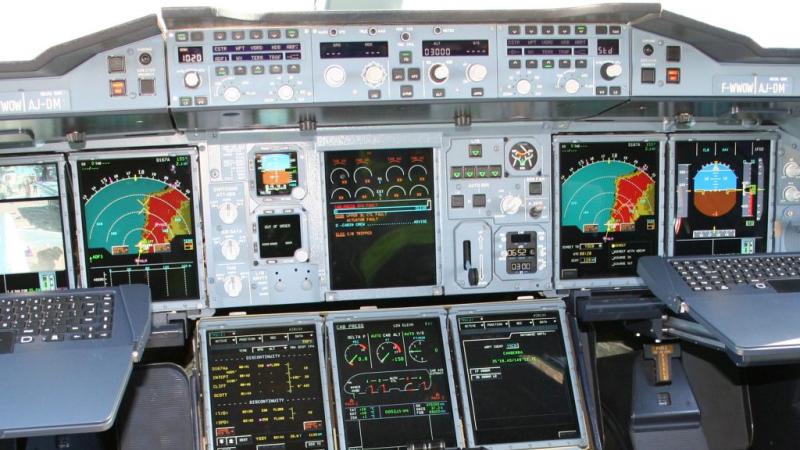January 31, 2019


“We believe the next generation of aerospace systems will be
able to feel, think, and react in a way that is similar to how biological
systems behave.”
That’s how Fotis Kopsaftopoulos describes the overarching goal behind a new project funded by the Air Force Office of Scientific Research. Kopsaftopoulos, an assistant professor of aerospace engineering, and Carlos Varela, an associate professor of computer science, were awarded a three-year $655,964 grant in the area of Dynamic Data Driven Application Systems (DDDAS), which is an entire research program area within the Air Force Office of Scientific Research. Kopsaftopoulos helped to explain the idea by walking through the three key phrases: “dynamic,” “data driven,” and “applications systems.”
“When these aerospace systems operate, this operation is
dynamic – you might have changes in attitude, air speed, weather, temperature, or
even faults and damage to components – it’s constantly changing with time and
the environment,” he said. “Data driven systems employ data from multimodal
sensors within the system; they could be reporting any kind of information the
system is generating: It may be related to the environment, such as temperature
and humidity, to the structure, such as strain, loads, and acceleration, or
even to the various systems and avionics, for example voltage and current. So,
is there a way to model the system? And, using that model, can we steer both
the data measurement process and control the system itself in an optimal way? Is
there a way to know what is going on so that we can figure out what to do? We
call this framework, this approach, ‘state awareness.’”
Enabling state awareness offers several advantages, first
among them safety.
“State awareness can alert us and help with decision-making
in the event of a fault, or a subsystem error. It can increase safety by helping
to decide if we have to land or we can keep flying, or telling us we have to do
some kind of maintenance.”
Such an approach also helps to optimize performance, enable
the autonomous operation of aerospace systems, and it can reduce the industry’s
significant sustainability and maintenance costs by incorporating life-cycle
monitoring and management of systems. The main challenge, though, is to verify
and validate the correct behavior of autonomous aerospace computational systems
using data-driven models, especially given the stochastic nature of data.
The grant will develop and formally verify stochastic state
awareness algorithms. Kopsaftopoulos said they will focus on dynamically
leveraging and using multimodal systems; developing stochastic data-based and machine
learning models to interpret this heterogeneous data stream; and formally
verifying that the output of these models and state awareness algorithms provides
the precise flight state, or health state of the aircraft. Kopsaftopoulos and
Varela will investigate the notion of “safety envelopes,” to precisely
characterize conditions under which dynamic data-driven aerospace systems are
guaranteed to behave correctly.
Taken together, he said the approach is an example of “smart
data analysis,” where they are trying to leverage the physics-based knowledge
of the system and integrate it with data, in contrast to a purely big data
approach.
For more details, here’s the project title and abstract: Formal Verification of Stochastic State
Awareness for Dynamic Data Driven Intelligent Aerospace Systems.
Future intelligent aerospace systems will be able to “feel,”
“think,” and “react” in real time based on high-resolution ubiquitous sensing
and unprecedented self-awareness, self-diagnostic, and self-healing
capabilities. Such revolutionary systems are extremely complex in nature and
require the seamless integration of dynamic data, algorithms, computation, and
interpretation, i.e., falling within the area of Dynamic Data Driven Application
Systems (DDDAS). DDDAS can dynamically incorporate real-time data into an
executing application, and in reverse, can steer the data measurement processes
based on the system's dynamic data integration and interpretation. Toward this
end, the main objective of this work is the postulation of a novel stochastic
dynamic data-driven approach that will enable the next generation of
self-aware, self-diagnostic, and self-healing aerospace DDDAS within a formal
verification framework that can prove the correctness of stochastic state
awareness algorithms with respect to mathematically well-defined and precise
(formal) specifications of data, models, and system properties.